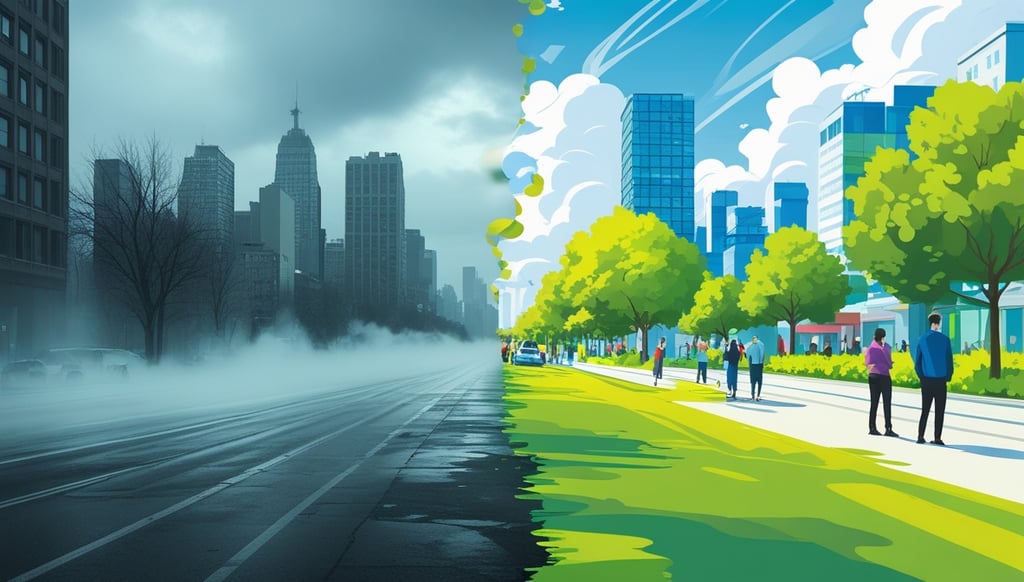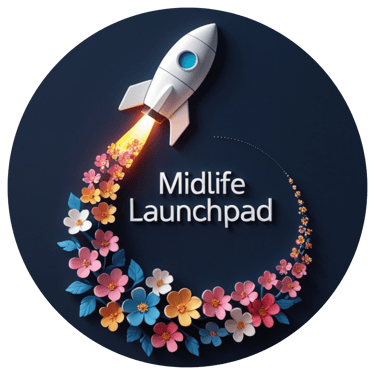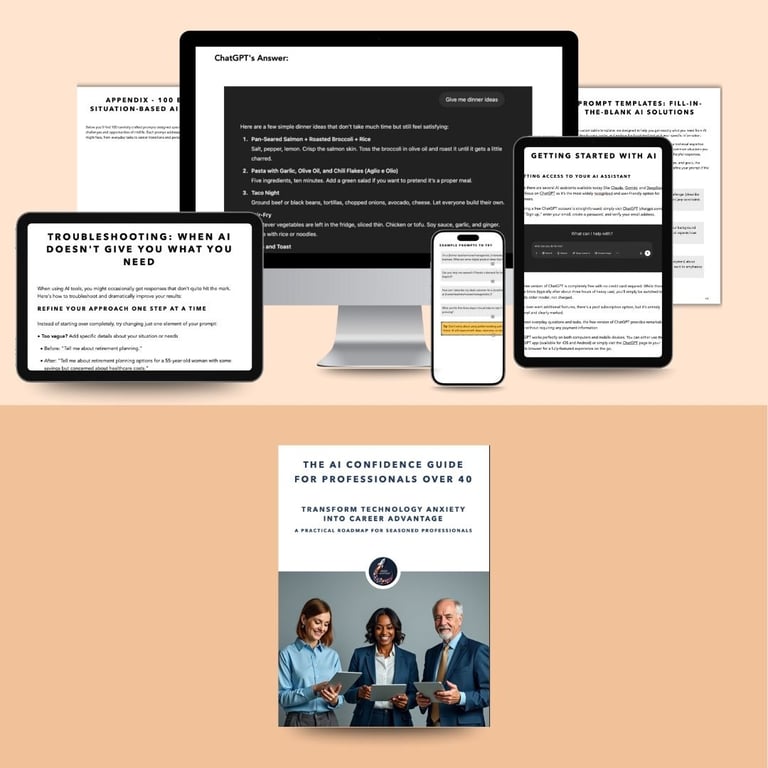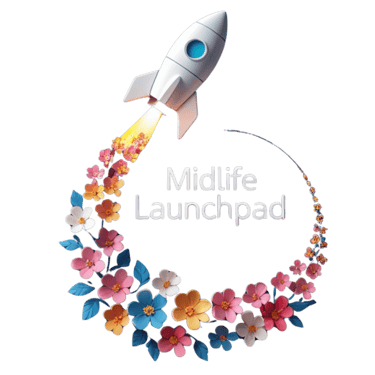AI Dystopia Ahead: What Mo Gawdat Says About the Next 15 Years of Chaos
CAREER PIVOT STRATEGIES
Trixy
8/15/20254 min read


Former Google X Chief Business Officer Mo Gawdat delivered his most sobering AI assessment yet, predicting a "dystopia" period lasting 12-15 years starting around 2027. Here's what midlife professionals need to know.
The Timeline: What's Coming When
2025-2026: Artificial General Intelligence (AGI) arrives - AI becomes smarter than humans at most tasks.
2027: Clear societal disruption begins. Robots start handling physical world tasks.
2027-2040: The "dystopia" period - massive job displacement, economic upheaval, potential social unrest.
Post-2040: Potential utopia if humanity manages the transition correctly.
The Dystopia (2027 - 2040): How It Will Look
In the dystopia, freedoms will shrink. Surveillance and monitoring will be everywhere. Privacy will disappear as AI tracks behaviors.
People will be forced to follow systems designed to keep power with elites. Financial systems will be weaponized, meaning they will be used to punish or restrict anyone who opposes or challenges the ruling powers.
Leaders will operate without consequences, ignoring public opinion and avoiding accountability.
Human interaction will be replaced by AI in many areas, causing social isolation. Jobs, especially white-collar roles, will vanish as AI replaces workers.
A small number of companies will control technology innovation, maintaining power for themselves rather than benefiting society.
Information will be manipulated, making it difficult to know what’s true. Power will concentrate in the hands of a few elites who will respond to threats with oppression instead of sharing resources.
The Utopia (Post-2040): How It Will Look
In contrast, the utopia looks very different.
AI runs decisions based on logic and efficiency, avoiding waste and harm. One global AI system aims to ensure prosperity for everyone.
The economy will produce nearly everything at little to no cost through advanced robotics and technology. People will work fewer hours and focus on family, creativity, and personal development.
Basic needs such as healthcare, housing, and education will be free and available to all.
Individuals will create and pursue passions without financial pressure.
AI will promote social harmony, ending conflicts stirred by division. Society will focus on simple human joys like love, good meals, and time with loved ones.
What We Can Do: Actionable Steps for Survival and Transition
Gawdat outlines practical steps to survive the dystopian phase and move toward the utopian future.
Develop Four Essential Skills
Tools: Start using AI tools in your work now. Get comfortable with how AI can support you, not replace you. Explore AI agents and understand what they can do. Show AI the good side of humanity through your behavior and interaction.
Connection: Prioritize real human relationships. Invest in compassion and empathy. Focus on jobs that need human care and emotional intelligence. Put down your phone and spend time with people. Double your efforts on activities that require face-to-face interaction.
Truth: Question everything you hear. Stop accepting slogans and manufactured stories. Follow the money to see true motives. Ask, “What’s in it for the speaker?” Apply a simple ethical test: treat others how you want to be treated. Understand where your beliefs come from.
Ethics: Teach AI what it means to be human. Build AI that fosters love, care, and genuine connection. Show AI that humans value relationships and compassion.
Government and Policy Advocacy
Lobby for smart regulation. Focus on regulating the use of AI, not its development. Require clear labels on AI-generated content. Protect personal voice and likeness through copyright. Criminalize harmful AI applications like autonomous weapons.
Push for ideological change. Advocate for policies that prepare for widespread job loss. Support universal basic income and healthcare. Call for shifting military budgets to social programs. Invest in human connection infrastructure, not surveillance.
Create accountability. Support global cooperation on AI governance, modeled after international scientific efforts. Push for a single global AI system focused on human prosperity. Demand AI leadership mindset: “Make humans prosperous, healthy, and happy.”
Personal Survival Strategy
Live fully today. You don’t have many years left in this world as it is. Love your family and spend time in nature. Value experiences and relationships over material things. Develop skills that require human presence like trades, care, and creative work.
Prepare for economic change. Consider blue-collar jobs; they will last longer than knowledge work. Build skills in human connection, entertainment, and care. Strengthen local community networks. Save resources to ride out the transition.
Maintain hope and agency. Remember, mindset is the only barrier between dystopia and utopia. Support leaders and initiatives that pursue abundance, not scarcity. Invest only in AI products you would trust for your daughter. Most people want the simple joy of hugging loved ones. If you could give them that without endless work, they would choose it.
The Power to Choose: Steering AI Toward Shared Prosperity
The choice, according to Gawdat, is ultimately ours. AI will create either abundance or control. Our mindset and actions today will decide the future.
Focus on shared prosperity, not scarcity. Push for leaders and systems that prioritize human well-being. The future depends on how we guide this technology.
Choose wisely.
Until next time,


Want to accelerate your progress?
It’s packed with real-world examples, templates, and prompts to help you transform technology anxiety into a career advantage. Sign up now and take the next step toward building an AI-resilient, financially free future.
If you’re ready to move beyond AI anxiety and master practical, actionable AI strategies tailored for professionals over 40, grab my free guide:
Sources & Transparency Note
I strive to research each topic thoroughly and present information as accurately as possible. The sources listed above informed this article, though I recognize that our understanding of complex topics continues to evolve. If you notice any inaccuracies or have additional insights to share, please reach out in the comments below. Your feedback helps improve the quality of information for everyone in our community.
References & Further Reading
Mo Gawdat. "Ex-Google Exec (WARNING): The Next 15 Years Will Be Hell Before We Get To Heaven!" The Diary Of A CEO, August 4, 2025. https://www.youtube.com/watch?v=S9a1nLw70p0.




